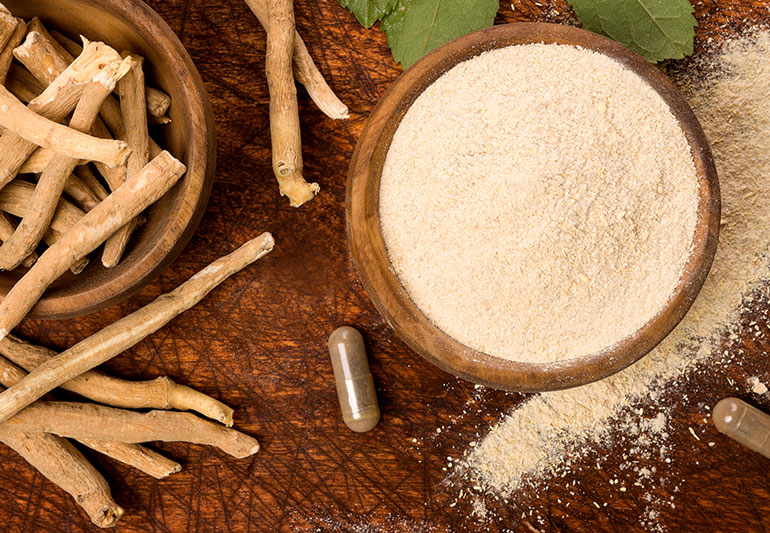Hypothyroidism, Graves disease, Hyperthyroidism, Hashimoto disease, Thyroid cancers, Tsh levels, Tsh blood test, Hashimoto, Thyroid gland, Parathyroid, Thyroxin, Thyroiditis, Thyroid treatment
Root Cause of Disease
The thyroid is a small, butterfly-shaped gland located at the base of the neck, just below the Adam’s apple. The thyroid gland makes two main hormones: thyroxine (T-4) and triiodothyronine (T-3). These hormones affect every cell in the body. They support the rate at which the body uses fats and carbohydrates. They help control body temperature. They have an effect on heart rate. And they help control how much protein the body makes.
Hypothyroidism happens when the thyroid gland doesn’t make enough thyroid hormone. This condition also is called underactive thyroid. Hypothyroidism may not cause noticeable symptoms in its early stages. Over time, hypothyroidism that isn’t treated can lead to other health problems, such as high cholesterol and heart problems.
Blood tests are used to diagnose hypothyroidism. Treatment with thyroid hormone medicine usually is simple, safe and effective once you and your health care provider find the right dosage for you.
Symptoms
The symptoms of hypothyroidism depend on the severity of the condition. Problems tend to develop slowly, often over several years.
At first, you may barely notice the symptoms of hypothyroidism, such as fatigue and weight gain. Or you may think they are just part of getting older. But as your metabolism continues to slow, you may develop more-obvious problems.
Hypothyroidism symptoms may include:
- Tiredness.
- More sensitivity to cold.
- Constipation.
- Dry skin.
- Weight gain.
- Puffy face.
- Hoarse voice.
- Coarse hair and skin.
- Muscle weakness.
- Muscle aches, tenderness and stiffness.
- Menstrual cycles that are heavier than usual or irregular.
- Thinning hair.
- Slowed heart rate, also called bradycardia.
- Depression.
- Memory problems
Hypothyroidism in infants
Anyone can get hypothyroidism, including infants. Most babies born without a thyroid gland or with a gland that doesn’t work correctly don’t have symptoms right away. But if hypothyroidism isn’t diagnosed and treated, symptoms start to appear. They may include:
- Feeding problems.
- Poor growth.
- Poor weight gain.
- Yellowing of the skin and the whites of the eyes, a condition called jaundice.
- Constipation.
- Poor muscle tone.
- Dry skin.
- Hoarse crying.
- Enlarged tongue.
- A soft swelling or bulge near the belly button, a condition called umbilical hernia.
When hypothyroidism in infants isn’t treated, even mild cases can lead to severe physical and mental development problems.
Causes
Hypothyroidism happens when the thyroid gland doesn’t make enough hormones. Conditions or problems that can lead to hypothyroidism include:
- Autoimmune disease: The most common cause of hypothyroidism is an autoimmune disease called Hashimoto’s disease. Autoimmune diseases happen when the immune system makes antibodies that attack healthy tissues. Sometimes that process involves the thyroid gland and affects its ability to make hormones.
- Thyroid surgery: Surgery to remove all or part of the thyroid gland can lower the gland’s ability to make thyroid hormones or stop it completely.
- Radiation therapy: Radiation used to treat cancers of the head and neck can affect the thyroid gland and lead to hypothyroidism.
- Thyroiditis: Thyroiditis happens when the thyroid gland becomes inflamed. This may be due to an infection. Or it can result from an autoimmune disorder or another medical condition affecting the thyroid. Thyroiditis can trigger the thyroid to release all of its stored thyroid hormone at once. That causes a spike in thyroid activity, a condition called hyperthyroidism. Afterward, the thyroid becomes underactive.
- Medicine: A number of medicines may lead to hypothyroidism. One such medicine is lithium, which is used to treat some psychiatric disorders. If you’re taking medicine, ask your healthcare provider about its effect on the thyroid gland.
- Problems present at birth: Some babies are born with a thyroid gland that doesn’t work correctly. Others are born with no thyroid gland. In most cases, the reason the thyroid gland didn’t develop properly is not clear. But some children have an inherited form of a thyroid disorder. Often, infants born with hypothyroidism don’t have noticeable symptoms at first. That’s one reason why most states require newborn thyroid screening.
- Pituitary disorder: A relatively rare cause of hypothyroidism is the failure of the pituitary gland to make enough thyroid-stimulating hormone (TSH). This is usually because of a noncancerous tumor of the pituitary gland.
- Pregnancy: Some people develop hypothyroidism during or after pregnancy. If hypothyroidism happens during pregnancy and isn’t treated, it raises the risk of pregnancy loss, premature delivery and preeclampsia. Preeclampsia causes a significant rise in blood pressure during the last three months of pregnancy. Hypothyroidism also can seriously affect the developing fetus.
- Not enough iodine: The thyroid gland needs the mineral iodine to make thyroid hormones. Iodine is found mainly in seafood, seaweed, plants grown in iodine-rich soil and iodized salt. Too little iodine can lead to hypothyroidism. Too much iodine can make hypothyroidism worse in people who already have the condition. In some parts of the world, it’s common for people not to get enough iodine in their diets. The addition of iodine to table salt has almost eliminated this problem in the United States.
Home Remedies to treat Hypothyroidism
Remedy – 1: Start Taking A Sugar-Free Diet

When you eat sugar or different types of processed foods that contain sugar, then these products work like a slow poison in your body. These food products can decrease the metabolism rate and energy levels in the long term. Also, sugar leads to inflammation issues in your body that slow down the conversion rate of T4 to T3 (triiodothyronine) hormones. This further causes different symptoms of thyroid disease in your body. So, it’s better to avoid sugar in your diet and boost your energy levels.
Remedy – 2: Raising Protein And Fiber-Rich Food Intake

Proteins are important supplements that facilitate the transportation of thyroid hormones to every tissue in the human body. So, when you consume these supplements in your meals, they help to normalize your thyroid function. Different types of protein sources like nuts, salmon, chicken, quinoa, legumes, pulses, etc. can be added to your meal.
Also, you must eat whole grain wheat and flaxseed that are enriched with fiber components. This fibrous food will smoothen the functioning of endocrine glands and finally help to release the required insulin (thyroid hormone) in the blood.
Remedy – 3: Focus On Herbal Remedies
Materials: Ashwagandha

Ashwagandha is the herb used in ayurvedic practices to reduce thyroid gland abnormalities, particularly in the subclinical hypothyroidism stage.
It contains a mixture of Gotukola, Shankhapushpi, and Ashwagandha herbs to nourish the thyroid hormones for its smooth functioning. The herb Gotu Kola balances the thyroid hormone levels, heals skin problems, and boosts your brain, kidney, and liver functioning. Shankhapushpi balances the enzyme group.
Remedy- 4: Consume Iodine, Selenium, B12 rich food

Selenium is a trace element that plays a part in thyroid hormone metabolism. Many foods contain selenium, including:
- Tuna
- Turkey
- Brazil nuts
- Grass-fed beef
Vitamin B-12 can help with the tiredness thyroid disease can cause. The disease also affects your vitamin B-1 levels.
- Asparagus
- Sesame seeds
- Milk
- Eggs
Remedy – 5: Probiotics

The NIH studied the link between hypothyroidism and small intestine problems. It was found that altered gastrointestinal (GI) motility commonly seen with hypothyroidism can cause small intestinal bacterial overgrowth (SIBO) and ultimately lead to chronic GI symptoms, such as diarrhea.
Probiotics contain live helpful bacteria that can help keep your stomach and intestines healthy.
- fermented food and drinks
- Kefir
- Kombucha
- yogurt
Other Remedies
Soy products
People who suffer from hypothyroidism should add protein-based foods to their diets. Protein transports thyroid hormones to different body tissues. There are some studies in which it is shown that a moderate concentration of soy sterols can help you to improve this condition. You should eat more soy products because they can help you in the treatment of hyperthyroidism. If you do not like to eat soy products, then you should add legumes, farmed fish, eggs, quinoa, and nuts to your diet.
Fish oil
Fish oil is a good natural cure for hypothyroidism because they increase thyroid hormone uptake and maintain healthy thyroid function. It is rich in omega – 3 fatty acids which mean that it can fight against inflammation and increase immunity. You should take fish oil supplements after you have talked with your doctor, especially if you are taking blood thinners. The general dosage is up to three grams per day.
Kelp
Kelp is a brown seaweed that is rich in iodine and other minerals. It is a very effective home remedy for people who suffer from hypothyroidism which is caused by iodine deficiency.
This home remedy is not recommended for people who suffer from autoimmune thyroid problems because it can worsen this condition. You should talk with your doctor before you start taking kelp supplements. Your doctor will check if this natural cure is suitable for you, and he or she will find the correct dosage which is specific to your condition.
Preventions
Hypothyroidism cannot be prevented. The best way to prevent developing a serious form of the condition or having the symptoms impact your life in a serious way is to watch for signs of hypothyroidism.
- Avoid Processed Food: A lot of chemicals can alter the thyroid hormone production. One needs to avoid any kind of processed food; they are on the edge of thyroid disorder.
- Avoid Soy: Limit the soy intake as it alters the hormone production.
- Stop Smoking: The toxins released during smoking can make the thyroid gland over sensitive which can lead to thyroid disorders.
- Reduce Stress: Stress is one of the major contributors in many health disorders including thyroid disease.




